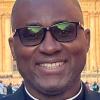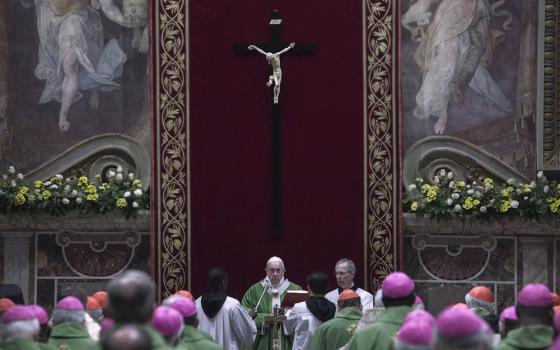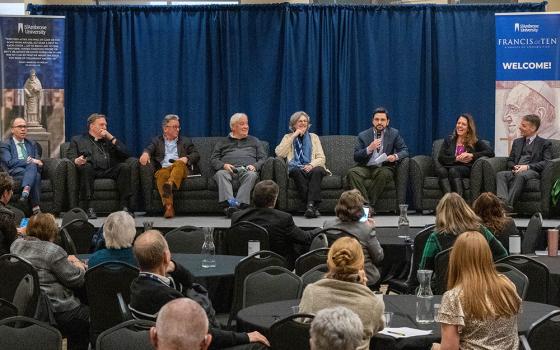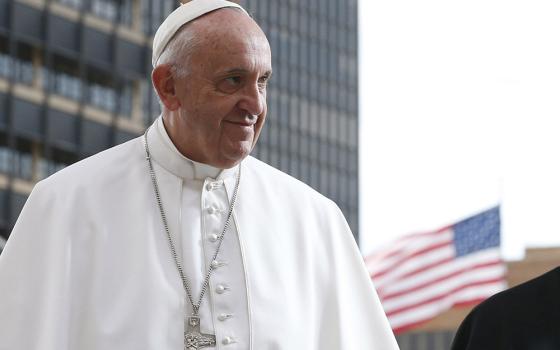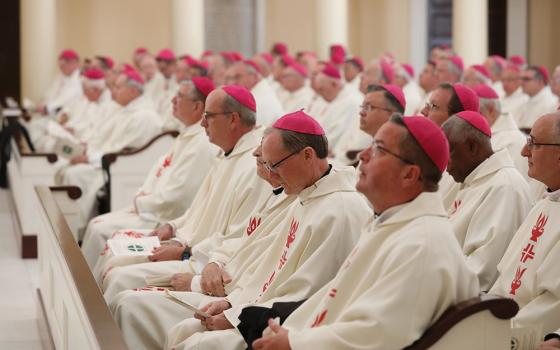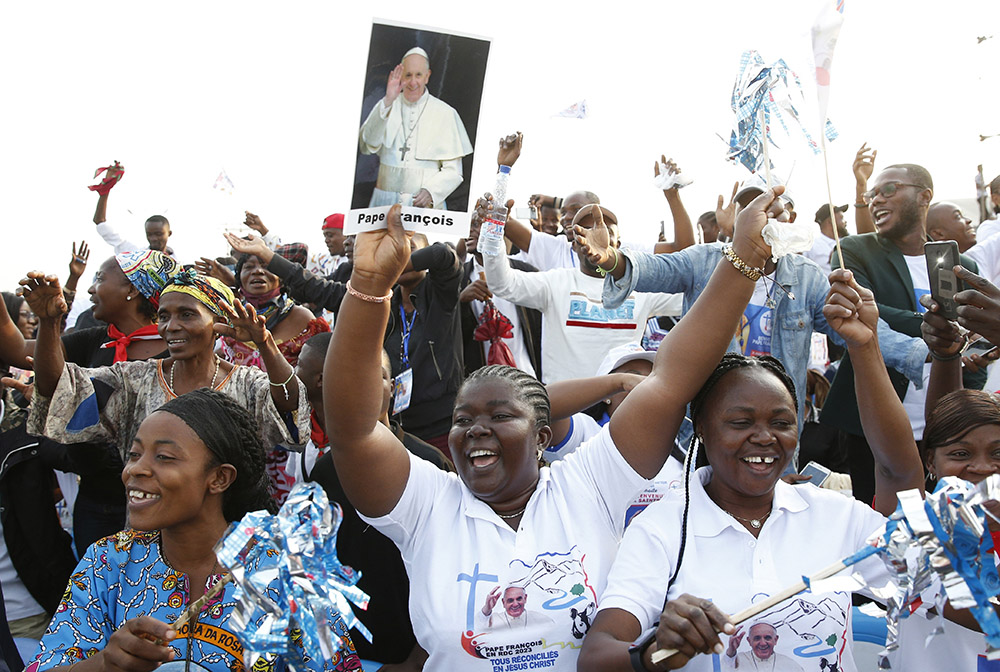
Pope Francis celebrates Mass at Ndolo airport in Kinshasa, Congo, Feb. 1. (CNS/Paul Haring)
When the new pope was presented to the cheering crowd at St. Peter's Square on March 13, 2013, not many people in the rest of the world outside Latin America knew much about Argentine Cardinal Jorge Mario Bergoglio. I was working as an African expert on global Catholicism for Canada Television (CTV) and I went blank when he was presented to the world on live TV. I was speechless and could only run off the list of what we African Catholics wanted from the new pope, while buying some time to get some biographical information.
Today, most Catholics not only know and love Pope Francis, but they also see a deep connection between his message and priorities and their dreams and hopes for a better church and a world.
One constant word that Francis uses, especially since COVID-19, is "dream." The title of one of his recent books is Let Us Dream, and in Querida Amazonia, the document from the Amazon synod, he writes of four dreams: cultural, social, ecological and ecclesial.
He also described his recent trip to Africa as a dream come true. He used the same image of dream to capture his hope for Africa, the church and the world in a virtual conversation with African young people on All Saints Day in 2022. He told his young African audience never to stop dreaming about a better future for Africa because if young Africans stop dreaming countries will die.
This dream was captured so well when Francis stood alone at St. Peter's Square on March 27, 2020, during the COVID-19 pandemic and spoke words of hope to the world when he asked humanity "to reawaken and put into practice that solidarity and hope capable of giving strength, support and meaning to these hours when everything seems to be floundering."
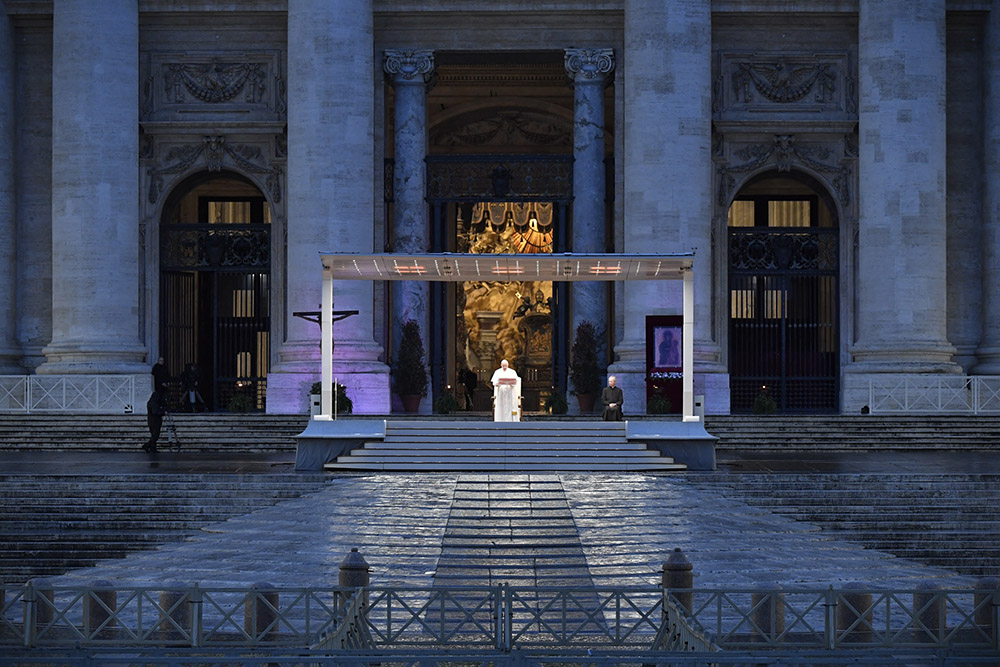
Pope Francis leads a prayer service in an empty St. Peter's Square at the Vatican March 27, 2020. At the conclusion of the service the pope held the Eucharist as he gave an extraordinary blessing urbi et orbi ("to the city and the world"). The service was livestreamed in the midst of the coronavirus pandemic. (CNS/Vatican Media)
He invited the world to embrace the courage to dream again. In the darkest hour that faced humanity in recent memory, Francis stood strong as a courageous prophet, whose words and gestures were like diverse points of illumination to a wounded and broken world, caught in an anxious long night of pain, perils and pandemic.
The 10th anniversary of this consequential and disruptive papacy is a joyful moment to reflect on the significance of this pope who calls us to dare to dream again. Why is this dream of a new church in a new world being opposed by many within the church?
When I left my home country of Nigeria for studies in Rome 20 years ago, my father made one request of me: "Please when you return for holidays from Rome, please bring me holy water from the fountain at St. Peter's Square."
He, like many ordinary Catholics, did not want to be bothered with the politics or battles in Rome, and the vestiges of ultramontanism that have sustained the fortress mentality of ideological and dogmatic Catholicism. Many committed African Catholics like my late father, who worked in missionary schools to raise a new crop of African disciples for the church, wish to have a deep spiritual connection with Rome and the communion with world Christianity through this ancient institution.
For many Catholics today, there is still that idyllic image of Catholicism as a deep spiritual well, and a bridge that connects them to diverse cultural and spiritual experiences from cultures and peoples all over the world.
Many other Catholics experience Catholicism in a special way through their parish celebration of the sacraments, and the social and spiritual bonds of solidarity and supportive networks built around their parish.
Advertisement
The Catholic Church, despite its weaknesses and many scandals, continues to be for many a reliable source for creedal certainty in a world ideologically awash with diverse theological, moral and spiritual standpoints. Most Catholics take pride in their church — for better or for worse, and some rather triumphantly — as the gold standard of Christian orthodoxy and a link between the spiritual traditions of the past and the present.
However, Catholicism for those outside of it, and more so for those inside of it, remains a cultural and spiritual heritage that can never be contained in one vessel, historically, theologically and otherwise. Sadly, the binaries of inclusion and exclusion, which have often been legitimated by some versions of a presumed Catholic orthodoxy and fidelity rooted in Christendom's ideas and projects, continue to be a challenge to many Catholics.
This is not only a challenge in the erstwhile European Christian heartland, but also in Africa and the rest of the Global South, depending on which side of the doctrinal divide one inhabits.
This challenge is even harder for those Catholics who still hold on to the defunct idea that the Catholic Church is an ahistorical and homogeneous sacrament of salvation, without any internal cultural differentiation. This worldview makes it hard for some in the church to accept any changes or to embrace diversity in the church.
Many in this camp do not yet see or joyfully embrace the changing faces of Catholicism with this shift of the center of gravity from the West to Africa and the rest of the Global South. This is why in many churches in North America and Europe, seeing a black priest, or an Indian nun or a Filipino cardinal holding some important positions in the church is still a novelty that surprises many, excites a few, and distresses some others.
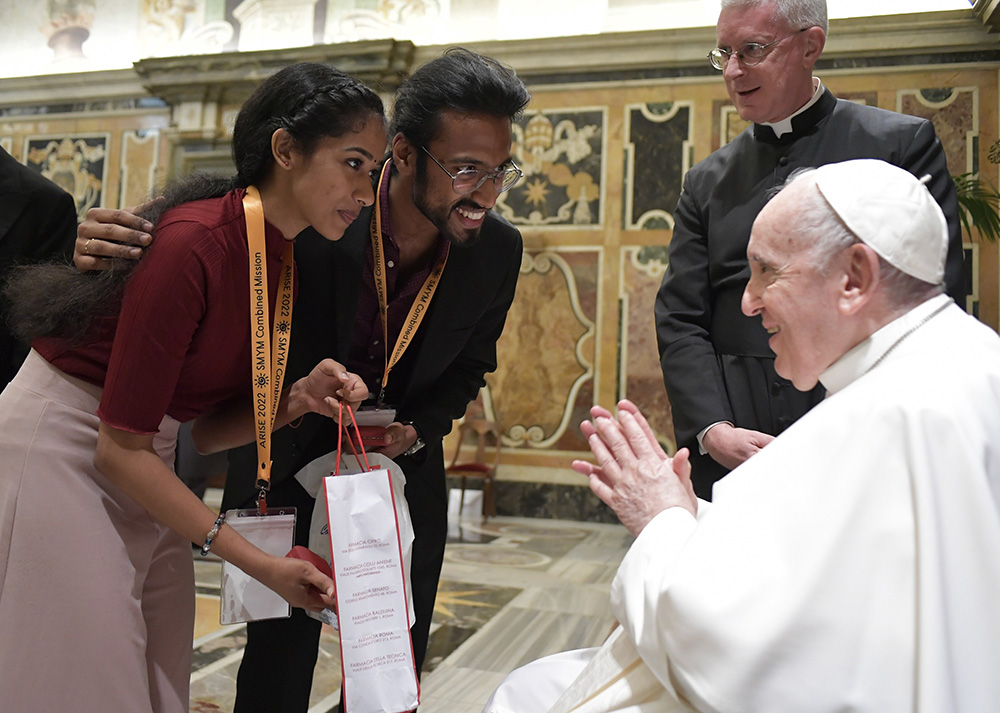
Pope Francis greets young people during an audience with participants in the Syro-Malabar Youth Leaders Conference, at the Vatican June 18, 2022. (CNS/Vatican Media)
When Francis champions issues around climate change, decolonization, exploitation of Africa and the poor, clericalism, immigration and inclusion of women, many high-ranking officials within the church respond with severe criticism and rebuke because it unsettles their culture of entitlement.
Striking a balance in Francis' papal priorities and strategies continues to be an unfinished task, just like it is a challenge finding the best way to handle the criticism directed at him, knowing as he does that the church like the net of the Lord will always have different kinds of fish.
Whatever perspectives one admits in the schismatic binaries in Catholicism today, the times seem appropriate for the emergence of new prophets who will lift our gaze beyond the imprisoning certainties about the things we do not know, beyond the pride of an ecclesial mindset that seeks to provide definitive answers to indefinite questions and mysteries that define what it means to be human in an infinitely boundless cosmos.
The challenge facing Catholics today is the humble embrace of a new Catholic imagination and creative appropriation of the treasures of the church to meet the challenges of the times. This is why I think that we are now in an era of the prophets who are like sentinels on the mountaintop pointing the church and the world to new pathways that may never have been followed before.
Such prophets also help us to see beyond the certainties and imprisonment that often block religious groups from seeing the infinite horizon as they get locked up in repetitive communal practices, rituals and institutional culture that often no longer elicit the same meaning and response from the present generation as they did in the past.
Francis is such a prophet needed for our times. As we celebrate 10 years of his papacy, it is important that Catholics throughout the world answer his invitation to the church to embrace a culture of encounter. We must courageously set apace on this synodal pilgrimage because it is possible for Catholicism to find within her bosom a new way of being church, and new paths for meeting the challenges of today in fidelity to the God of surprises and renewal.
